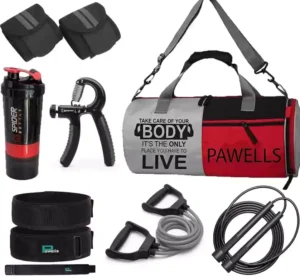Choosing the right trainer is crucial for your fitness journey, as they can provide guidance, motivation, and support to help you reach your goals safely and effectively. Here are some points to consider while selecting a trainer:
1. Certification and Qualifications: Look for trainers who hold reputable certifications from recognized organizations such as the American Council on Exercise (ACE), National Academy of Sports Medicine (NASM), or the International Sports Sciences Association (ISSA). Additionally, inquire about their educational background and any specialized certifications or training relevant to your goals or needs.
2. Experience and Expertise: Consider the trainer’s experience working with clients similar to you in terms of age, fitness level, goals, and any specific needs or limitations you may have. Ask about their areas of expertise and whether they have successfully helped clients achieve similar goals in the past.
3. Communication and Interpersonal Skills: Assess the trainer’s communication style, ability to listen, and interpersonal skills. A good trainer should be able to effectively communicate instructions, provide feedback, and motivate you to push past your limits while respecting your boundaries and preferences.
4. Approach to Training: Determine whether the trainer’s training philosophy and approach align with your preferences and goals. Some trainers may emphasize strength training, while others focus on functional training, flexibility, or specific sports conditioning. Choose a trainer whose approach resonates with you and addresses your needs.
5. Customization and Individualization: Look for a trainer who takes a personalized approach to training, tailoring workouts and programming to your specific goals, abilities, and preferences. Avoid trainers who provide generic or one-size-fits-all programs that do not consider your individual needs or limitations.
6. Safety and Injury Prevention: Ensure the trainer prioritizes safety and injury prevention by emphasizing proper form, technique, and exercise progression. Inquire about their approach to assessing and mitigating injury risk, as well as their familiarity with common injuries and how to work around them.
7. Availability and Scheduling: Consider the trainer’s availability and scheduling options to ensure they can accommodate your preferred training times and frequency. Discuss logistical details such as session length, location (in-person or online), and any additional services or amenities offered.
8. References and Reviews: Seek out references from past or current clients and read online reviews to gauge the trainer’s reputation, professionalism, and effectiveness. Testimonials and reviews can provide valuable insights into the trainer’s track record and client satisfaction.
9. Cost and Value: Evaluate the trainer’s pricing structure and fees in relation to the services provided, expertise, and results achieved. While cost is a consideration, prioritize value and quality when selecting a trainer who can help you achieve your goals safely and effectively.
10. Gut Feeling and Compatibility: Trust your instincts and consider whether you feel comfortable and confident working with the trainer. A positive rapport and sense of trust are essential for a successful trainer-client relationship, so choose someone you feel motivated and supported by.
By considering these points while choosing a trainer, you can find a qualified professional who aligns with your goals, preferences, and needs, setting you up for success on your fitness journey.




